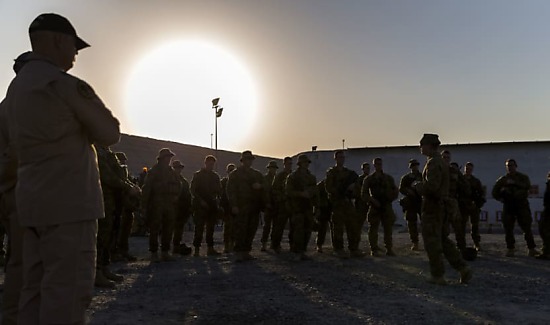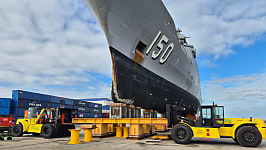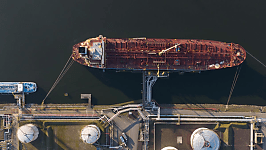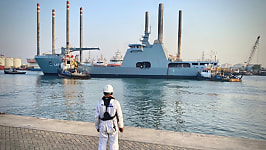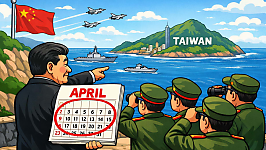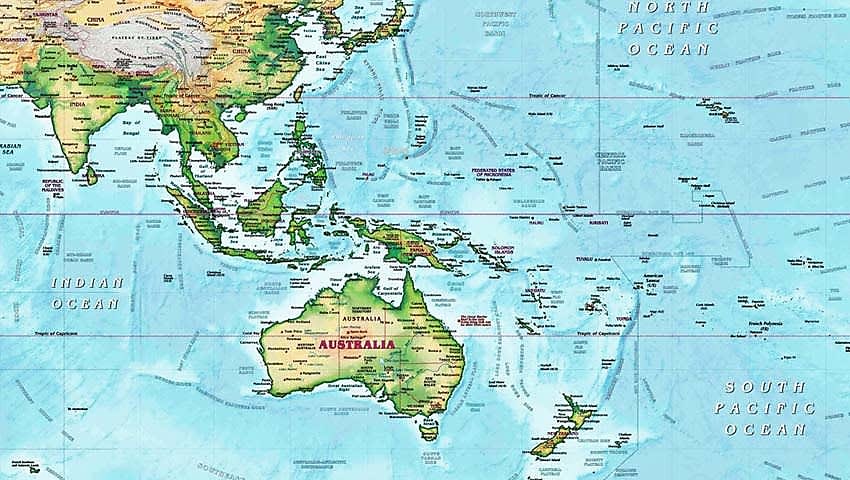Australia has long sought to balance the paradigms of strategic independence and strategic dependence – seemingly limited by a comparatively small population and industrial base, the pendulum has always swung more heavily towards a paradigm of dependence, however the changing nature of domestic and global affairs requires renewed consideration.
Australia’s earliest strategic relationship with the British Empire established a foundation of dependence that would characterise all of the nation’s future defence and national security relationships both in the Indo-Pacific and the wider world. As British power slowly declined following the First World War and the US emerged as the pre-eminent economic, political and strategic power during the Second World War, Australia became dependent on “Pax Americana” or the American Peace.
The growing conventional and hybrid capabilities of peer and near-peer competitors – namely Russia and China – combined with the growing modernisation, capability enhancements and reorganisation of force structures in the armies of nations including India, Indonesia, Vietnam and Thailand, all contribute to the changing balance of economic, political and strategic power in the Indo-Pacific.
This perfect storm of factors, swirling like a maelstrom across Australia’s northern borders, has largely gone unnoticed by the Australian public, beyond the odd port visit by American or, as recently happened, Chinese naval vessels that seem to cause momentary flurries of concern. Meanwhile, Australia’s strategic and political leaders appear to be caught in an increasingly dangerous paradigm of thinking, one of continuing US-led dominance and Australia maintaining its position as a supplementary power.
Prior to establishing a new paradigm and priorities, it is critical to understand the nation’s history of strategic policy making and the key priorities that have defined Australia's position in the Indo-Pacific since federation – traditionally, Australia’s strategic and defence planning has been intrinsically defined and impacted by a number of different yet interconnected and increasingly complex factors, namely:
- Guaranteeing the enduring benevolence and continuing stability of its primary strategic partner – via continued support of their strategic ambitions;
- The geographic isolation of the continent, highlighted by the 'tyranny of distance';
- A relatively small population in comparison with its neighbours; and
- Increasingly, the geopolitical, economic and strategic ambition and capabilities of Australia’s Indo-Pacific Asian neighbours.
This state of 'strategic dependence' has placed Australia at a disadvantage and entrenched a belief that the nation is both incapable of greater independent tactical and strategic action and must consistently support the designs and ambitions of great powers, with little concern for the broader impact on Australia and its national interests as a form of insurance.
In contrast, 'strategic independence' does not preclude great power relationships or strategic partnerships – what it does do is define Australia's unique national interests and areas of responsibility – while also providing the avenue and impetus for Australia to take direct control of its strategic, political and economic future at a period of unprecedented upheaval.
Recognising great power limitations
It is important to recognise that for the first time America has a true competitor in China – a nation with immense industrial potential, growing wealth and prosperity, a driving national purpose and a growing series of alliances with re-emerging, resource rich great powers in Russia, and supported by a growing network of economic hubs and indebted psuedo-colonies throughout the Indo-Pacific and Asia.
Unlike the Soviet Union, China is a highly industrialised nation – with an industrial capacity comparable to, if not exceeding, that of the US, supported by a rapidly narrowing technological gap, supporting growing military capability and territorial ambitions, bringing the rising power into direct competition with the US and its now fraying alliance network of tired global allies.
Whether consciously recognising the potential of this challenge or not, the US President's direct, often confrontational approach towards allies belies domestic concerns about America's ability to maintain the post-Second World War global order. Andrew Davies of the Australian Strategic Policy Institute (ASPI) highlighted the importance of recognising the limitation of US power in a recent piece for ASPI, saying, "The assumption of continued US primacy that permeated DWP 2016 looked heroic at the time. It seems almost foolishly misplaced now."
Australia's growing need for strategic independence
As Australia's traditional strategic benefactors continue to face decline and comparatively capable peer competitors – the nation's economic, political and strategic capability is intrinsically linked to the enduring security, stability and prosperity in an increasingly unpredictable region. Renowned Australian strategic policy leader Hugh White has taken a dramatic shift in the way he proposes the planned defence of Australia.
White's focus on and underlying belief that Australia seriously committing to a sustained and focused effort to develop a true regional power is too difficult continues to perpetuate a 'black' and 'white' approach to developing strategic policy.
This approach fails to recognise the precarious position Australia now finds itself in, however it does identify key areas for the nation's political and strategic leaders to focus on if Australia is to establish a truly independent strategic capacity – this focuses largely on:
- Australia's continuing economic prosperity and stability and the role the economy plays in supporting defence capability;
- The economic, political and strategic intentions of Australia's Indo-Pacific neighbours; and
- The rapidly evolving technology-heavy nature of contemporary warfare.
"We probably can defend ourselves independently if we choose to do so and if we go about it the right way, which means adopting a military strategy that exploits the advantages of our geography and trends in the technology of warfare ... Second, it depends on how new technologies affect the conduct of military and maritime operations," White posited.
"Third, it depends on whether we can get access to the technologies that we would need to make our military strategy work. And finally, it depends on how our own economy fares, which will determine how much we would have to sacrifice to build the forces required to defend ourselves."
Responding to these challenges requires an approach that recognises each of these factors are all part of national security policy. This includes a dedicated focus on developing a robust economic and industrial capacity – devoid of dependence on any single source of economic prosperity – while focusing on developing a robust and independently capable tactical and strategic military capability, supported by Australia's enduring diplomatic good will and relationships in the region.
These responses do not hinder Australia's economic growth or strategic stability – rather, if developed, communicated and implemented correctly they support the economic growth, diversity and development of the nation, building on a record period of economic growth and prosperity – providing flow on benefits for Australia's strategic capacity to act as an independent strategic benefactor.
Your thoughts
The ADF serves an important role within Australia’s policymaking apparatus and is critical to long-term national security, and while the continued defence budget growth is expected to be widely welcomed by industry, the growing challenges to the Indo-Pacific region are raising questions about whether Australia’s commitment to 2 per cent of GDP is suitable to support the growing role and responsibilities that Australia will be required to undertake as regional security load sharing between the US and allies becomes a reality.
The nation is defined by its relationship with the region, with access to the growing economies and to strategic sea-lines-of-communication supporting over 90 per cent of global trade, a result of the cost-effective and reliable nature of sea transport. Indo-Pacific Asia is at the epicentre of the global maritime trade, with about US$5 trillion worth of trade flowing through the South China Sea and the strategic waterways and choke points of south-east Asia annually.
Enhancing Australia’s capacity to act as an independent power, incorporating great power-style strategic economic, diplomatic and military capability serves not only as a powerful symbol of Australia’s sovereignty and evolving responsibilities in supporting and enhancing the security and prosperity of Indo-Pacific Asia. Shifting the public discussion away from the default Australian position of "it is all a little too difficult, so let’s not bother" will provide unprecedented economic, diplomatic, political and strategic opportunities for the nation.
Get involved with the discussion and let us know your thoughts on Australia's future role and position in the Indo-Pacific and what you would like to see from Australia's political leaders in terms of increasing both the budget and manpower available to the ADF in the comments section below, or get in touch with
Stephen Kuper
Steve has an extensive career across government, defence industry and advocacy, having previously worked for cabinet ministers at both Federal and State levels.

